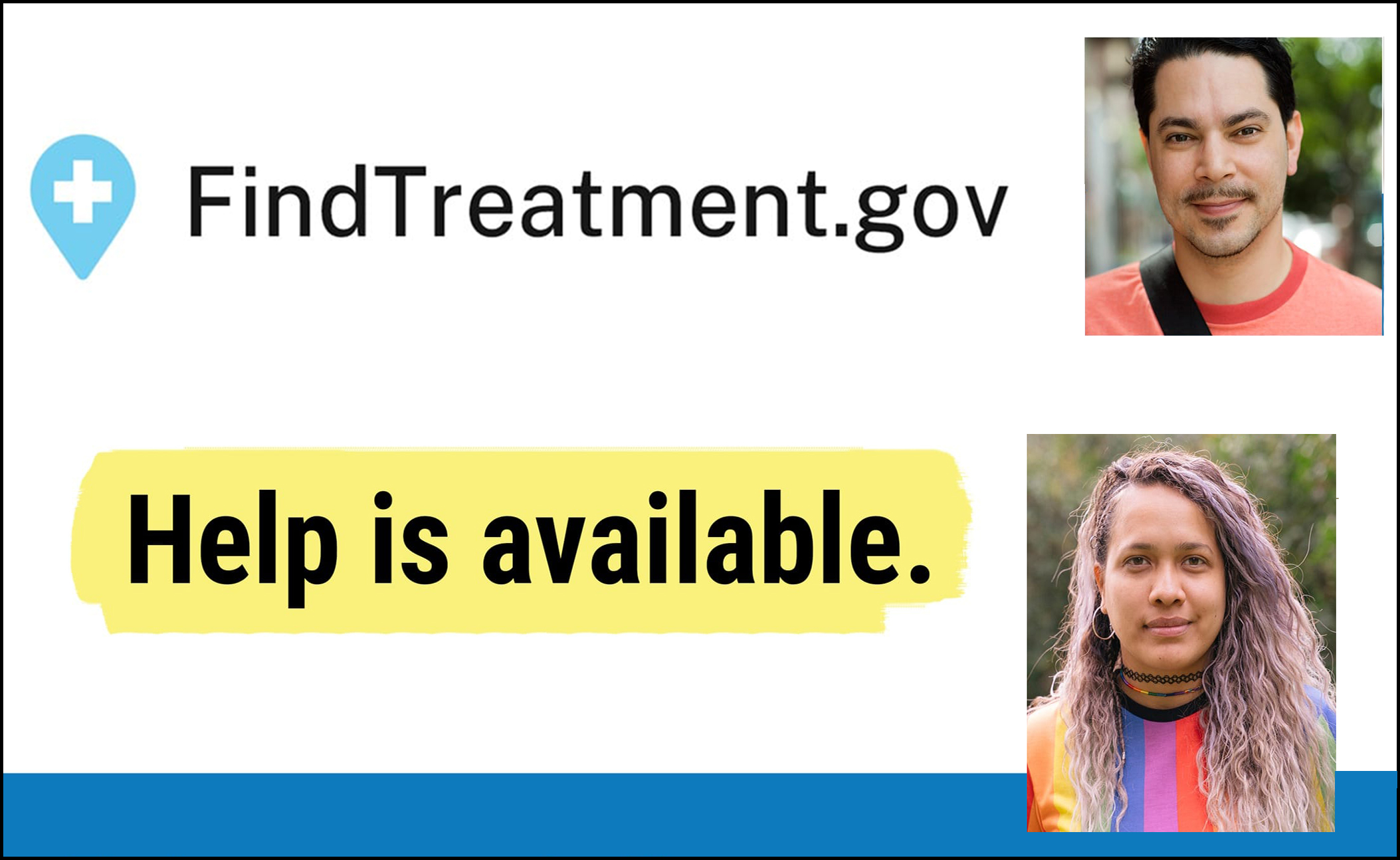Resources
ALERT ON TIANEPTINE
Tianeptine, a tricyclic antidepressant available overseas, has not been approved by the U.S. Food and Drug Administration for any medical use and is not legally available here.
Products containing tianeptine are illegally being sold and promoted in the U.S., often in health supplements with unproven health claims, and can lead to misuse, dependence, overdose, and death.
U.S. Poison control center cases of severe side effects involving tianeptine have and continue to increase, from 11 total cases between 2000 and 2013 to 151 cases in 2020.
Read and download the IHS Alert on Tianeptine flyer. [PDF 302 KB]
Alcohol Use Disorder Prevention, Intervention, and Aftercare

- Visit FindTreatment.gov to find a substance use disorder treatment center near you, or call 1-800-662-HELP (4357).
The Interagency Coordinating Committee on the Prevention of Underage Drinking (ICCPUD) is a standing committee of 15 federal agencies formed under Consolidated Appropriations Act of 2004, to provide ongoing, high-level leadership on this issue and to coordinate federal efforts aimed at preventing and reducing underage drinking.
The CDC Alcohol and Public Health site offers fact sheets, tools, guidelines, online media and other resources in its mission to strengthen the scientific foundation for preventing excessive alcohol consumption.
From the National Institute on Alcohol Abuse and Alcoholism (NIAAA) website, Alcohol's Effects on Health offers facts and statistics, information on alcohol use disorders and on alcohol's effects on the body.
NIAAA's Rethinking Drinking site offers calculators, quizzes, worksheets and other interactive tools to determine if one's drinking is becoming a problem and if so, what to do to make a change. "Rethinking Drinking," is available for download in booklet format, as well. The booklet "Rethinking Drinking," is available to order or for download .
Also from NIAAA, CollegeDrinkingPrevention.gov is as a one-stop resource for comprehensive research-based information on issues related to alcohol misuse and binge drinking among college students, with online tools for parents, students, administrators and more.
Drug Prevention, Intervention, and Aftercare
We are Native , operated by the Northwest Area Indian Health Board, aims to promote holistic health and positive growth in both locally and nationwide, and is a comprehensive health resource for Native youth, by Native youth, providing content on topics that matter to them most.
From NIH's National Institute on Drug Abuse (NIDA), Drugs of Abuse , provides overviews, clinical and street names, facts on effects, usage trends and other information on the most commonly abused drugs. Prescription Drug Abuse focuses on the nonmedical use and misuse of prescription drugs.
Hotline
SAMHSA's National Helpline 1-800-662-HELP (4357), is a confidential, free, 24-hour-a-day, 365-day-a-year, information service for individuals and family members facing mental health and/or substance use disorders. The helpline, available in English and Spanish, provides referrals to local treatment facilities, support groups, and community-based organizations.
Reports
The Drugs, Brains, and Behavior: The Science of Addiction booklet on drug addiction from NIDA describes drugs' effects on the brain and new approaches to preventing and treating substance use disorders.
The Northwest Portland Area Indian Health Board (NPAIHB) has two documents, a Tribal Substance Abuse Action Plan [PDF - 845 KB] and a Tribal Suicide Action Plan [PDF - 4 KB] available for download on their site.
From the University of Colorado's Journal of the National Center for American Indian Alaska Native Health, a report on Methamphetamine and other drug use in pregnant American Indian Adolescents [PDF - 445 MB] .
Other Resources
Please Note: The sites listed below are not affiliated with the Indian Health Service, and we cannot provide an endorsement of their services.
Alcoholics Anonymous is an international organization that founded and continues to offer the 12-step program to support the recovery from alcohol use disorder.
Al-Anon Family Groups is an organization that provides meetings and support to those with severe alcohol use disorder, their families, and friends.
The Partnership for Drug-Free Kids provides articles, tips, and resources for raising drug-free children.
NCCAD's Self-tests for Alcohol, Drugs, and Teens.


